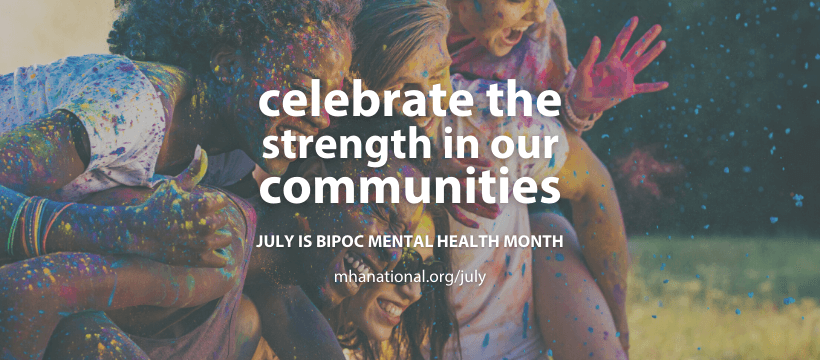From Mental Health America:
For generations, culturally-based practices have been erased, set aside, hidden away, or utilized in secret. The efforts to erase these practices are a cornerstone of the oppressive and violent actions implemented toward diminishing the history, value, and pride in BIPOC and QTBIPOC communities.
As a result of these aspects of historical trauma, individuals and communities modified their behaviors and actions to keep themselves safe, out of harm’s way, and to protect the practices from erasure. Unfortunately, the long-lasting impact of these behavior modifications resulted in individuals being unaware of culturally-based practices or hesitant to engage in them out of fear.
However, it is important to shed light on and engage in culturally based practices in order to heal. By learning about and embracing culturally-based practices, individuals and communities can begin the process of understanding the impacts of historical trauma, reclaiming the honor and pride of their ancestors, their historical knowledge, and the power that exists in connecting with one’s community through shared values, beliefs, and customs.
What you can do
You can take action to support a community approach to addressing the mental health needs of BIPOC and QTBIPOC individuals. Whether you identify as a member of these communities or want to be a stronger ally, the following steps help promote mental health and increase access to care.
- Examine the current structures and ask questions: A great starting point is to look critically at different existing systems and networks and analyze how they hurt or help BIPOC mental health. Consider the various barriers to accessing mental health care like cost and stigma and whether the current framework is the best approach to providing quality services and meeting the needs of communities.
- Push for accessibility in traditional health care: Take action by advocating for BIPOC and QTBIPOC accessibility in our current health care systems. Contact your local elected officials or use your channels like social media to talk about these issues. Call for expanded language services, culturally responsive provider training, expanded public education resources around health literacy, and more. Start contacting your elected officials with MHA’s action alerts.
- Hold organizations and institutions accountable: Our health care systems are not the only ones responsible for BIPOC mental health and the barriers to care. Ensure that the systems you are a part of, including workplaces, research institutions, schools, political structures, and beyond, actively assess how they contribute to the problems that exist for BIPOC and QTBIPOC mental health and support solutions to ensure change.
- Think beyond traditional health care: When advocating or looking for resources for yourself or a loved one, keep non-traditional health care supports in mind. If you find that the mainstream health care systems do not support BIPOC mental health effectively, expand criteria to include community support that may not come up in traditional searches or doctor recommendations. You can also create your support systems if something that fits you or your community’s needs does not already exist. The Sustainable Economies Law Center offers a Mutual Aid Toolkit as a resource for your efforts.
- Give credit to originating communities of healing practices: As outlined in this year’s toolkit, many BIPOC and QTBIPOC identifying individuals and communities developed their resources and supports to address mental health needs. However, they do not always get credit for these practices if they become adopted by mainstream society. If you choose to utilize a BIPOC-established approach, ensure that you give credit to the originating community and encourage others to do

